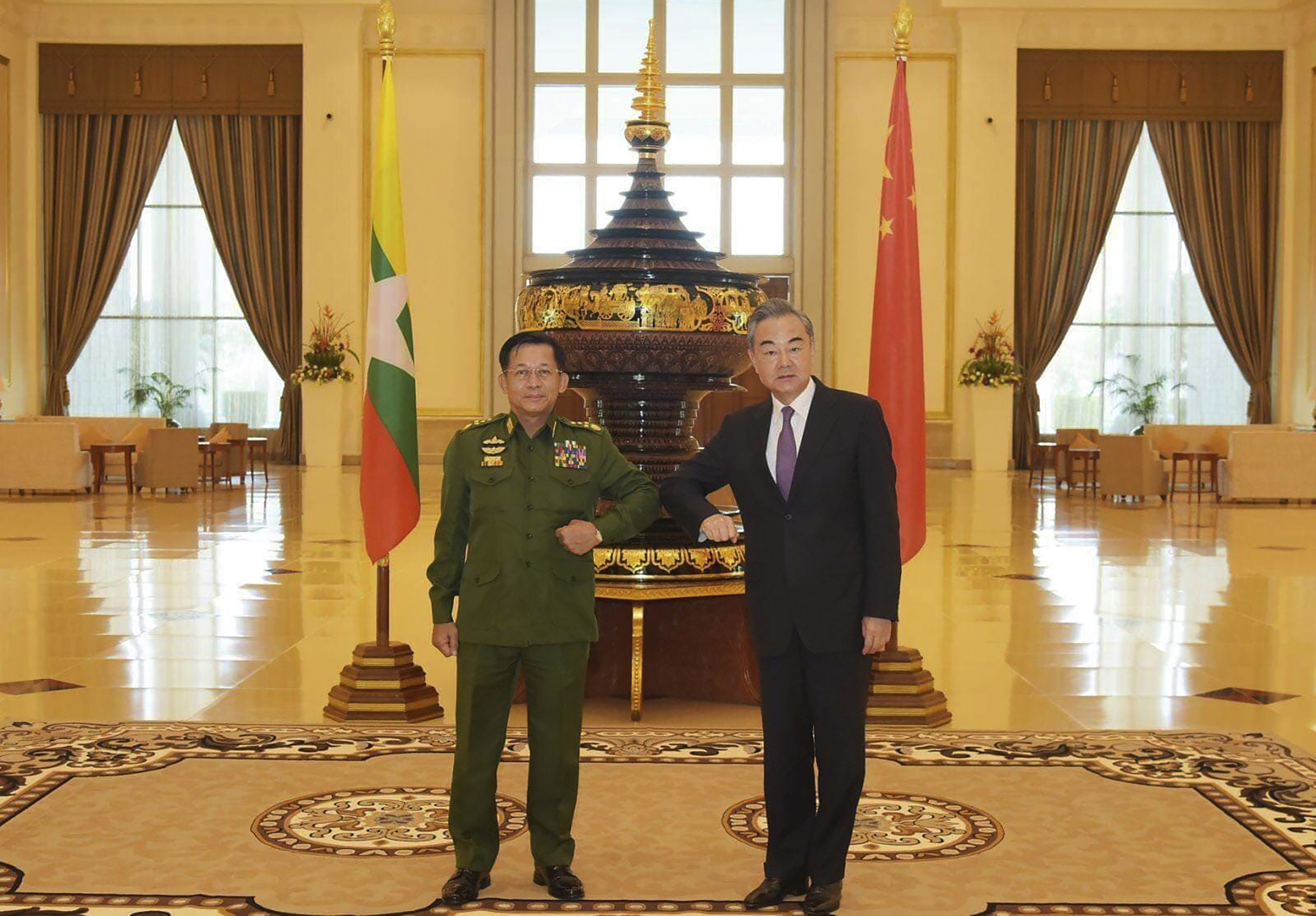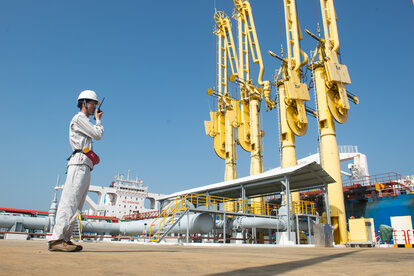Coup in Myanmar
China's two-pronged diplomacy

In the first year after the coup, a clear pattern has emerged in China's Myanmar policy: The Communist Party is doing business with the junta - while maintaining contacts with the ousted NLD. China wants to keep all options open in the strategically important neighboring country.
The Chinese took their time. Officials of the ousted ruling party NLD had written several letters to the Communist Party of the People's Republic. But it was not until July, some five months after the coup, that the hoped-for response came. In a reply to Myanmar's congratulations on the 100th anniversary of the Communist Party, the Chinese hoped for a "partnership" and a "friendly exchange".
However, China also has friendly exchanges with the NLD's arch-enemy - the Myanmar Armed Forces, or Tatmadaw, which seized power on 1 February 2021. Chinese state-owned enterprises continue to do business with the junta, and on the international stage, China's leadership is backing the new regime. According to media reports, it lobbied for military ruler Min Aung Hlaing to represent Myanmar at the China-Asean summit in November - but was unsuccessful.
One of the reasons for the two-pronged approach: about a year after the coup, the power struggle in Myanmar is not yet been clearly decided. The situation remains chaotic. The military has not yet gained complete control over the state apparatus and lost influence in the periphery of the country. Many authorities are only functioning to a limited extent. In addition, the civil war that has been smouldering for decades has flared up again after the coup. Ethnic armed organisations are trying to use the resulting power vacuum to expand their influence.
Massive investments in Myanmar
China has never publicly criticized the coup. Nevertheless, the escalating violence in Myanmar is a problem for China. In view of its enormous economic interests, stability is the main interest for the People's Republic in Myanmar. Through the neighbouring country's ports, China seeks short access to the Indian Ocean. In this way, the People's Republic can alleviate its so-called Malacca dilemma: A large part of its energy imports passes through the strait between Malaysia and Indonesia. Sea trade to Europe also passes through the strategically important strait.
Under the NLD government, China had therefore pushed the development of the "China Myanmar Economic Corridor", which is part of the Chinese Silk Road Initiative. Already completed are the 800-kilometre oil and gas pipelines running from Kyaukphyu in Myanmar to Kunming in China.Among the numerous planned infrastructure investments are the expansion of the Kyaukphyu deep-sea port with an investment volume of around 1.3 billion US-Dollar, as well as railway lines and roads to connect China with Myanmar ports on the Indian Ocean.
Work on the projects even after the coup continues. Shortly after the coup, the junta replaced the committees responsible for the respective projects. Only a few weeks after the coup, the military government also approved a Chinese investment of 2.5 billion US-Dollars in a new gas-fired power plant in the Ayeyarwady region. The expansion of the Kyaukphyu deep-sea port is also progressing. In September, the Chinese state-owned company CITIC and the junta agreed on joint planning work.
The Chinese are also investing on their side of the border. Only in late summer, they extended their high-speed rail network to Lincang - only about 100 kilometres from the border with Myanmar. From there, goods are to be transported to Yangon by truck. A Chinese CP official described the opening of the new line as a new chapter in the history of friendship between the two countries.

China against NLD ban
For Myanmar, private and state investors from China are almost indispensable. Western companies, but also Japanese and Indian corporations, have massively reduced their investments. Even the largest German investor, the Metro Group, is withdrawing from Myanmar. The World Bank estimates that the country's economy may have shrunk by around 18 percent last year.
While China does business with the junta, it continues to maintain contacts with the ousted NLD. According to media reports, a Chinese envoy tried to meet the detained former head of government Aung San Suu Kyi. However, he was denied access. China is also said to have lobbied the junta against banning the NLD. China sees the NLD, which is extremely popular in Myanmar, as a possible stabiliser - and is probably hoping for a better image within Myanmar through good contacts with the NLD.
A better perception of China in Myanmar would also reduce the risk for the huge investments. Many opposition members see China as an ally of the hated junta. Chinese infrastructure projects could thus also become targets of armed resistance.
The oil and gas pipelines are particularly at risk. At an event in Bangkok, a representative of the shadow government NUG said that friendly relations with all states were being sought - so the Chinese pipelines were not a target. However, it is questionable how well the NUG can coordinate and control the various resistance cells. A soldier who defected to the armed opposition said at the same event: "If we had the chance, we would blow up the pipelines immediately."
*Frederic Spohr manages the Foundation's projects in Thailand and Myanmar from Bangkok
